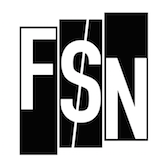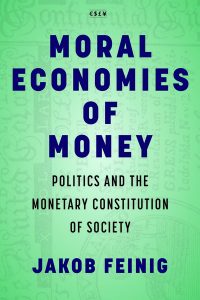Symposium on Jakob Feinig’s Moral Economies of Money.
Just Money, Winter 2024.
With contributions from Stephanie Mudge, Josh Pacewicz, Adam Slez, Pierre-Christian Fink, and David Freund.
Monetary orthodoxy has long drawn strength from its simplicity. Pedagogically, it is easy to explain the three functions of money and give a self-contained example. Recent criticism of this approach has been sustained but, by necessity, often took the form of intricate arguments and historical in-depth studies. Jakob Feinig’s Moral Economies of Money offers something new: in less than 200 pages, it compresses much of the critical scholarship on American money from the Colonial Era to the New Deal. The book makes accessible and builds out recent insights by tying monetary struggles to many of the great questions of U.S. history, employing a consistent analytical framework.
A sociologist who employs historical methods, Feinig articulates how the presence or absence of a democratic politics of monetary system design was intertwined with different monetary forms. He calls the presence of such a politics “moral economies of money;” its absence, “monetary silencing.” Should moral economies and silencing be seen as—excuse the pun—two sides of the same coin, or would future research building on the book benefit from differentiating multiple dimensions: morality, silence/salience, and maybe also ongoing governance? The latter approach would analyze processes unfolding along these multiple dimensions as constantly intertwined and overlapping. This theoretical question is closely related to some of the central topics in U.S. history. How did various forms of money go together with policies governing land that were as different as the removal of Native Americans from their homelands, and government support for residential mortgages? What is the relationship between the monetary periodization chosen by Feinig and realignments of the party system?
The roundtable grew out of an author-meets-critics session at the Social Science History Association meeting in Washington, DC organized by Besnik Pula. Building on Feinig’s work, it engages with the history of monetary governance in the U.S. and its implications for the present.


